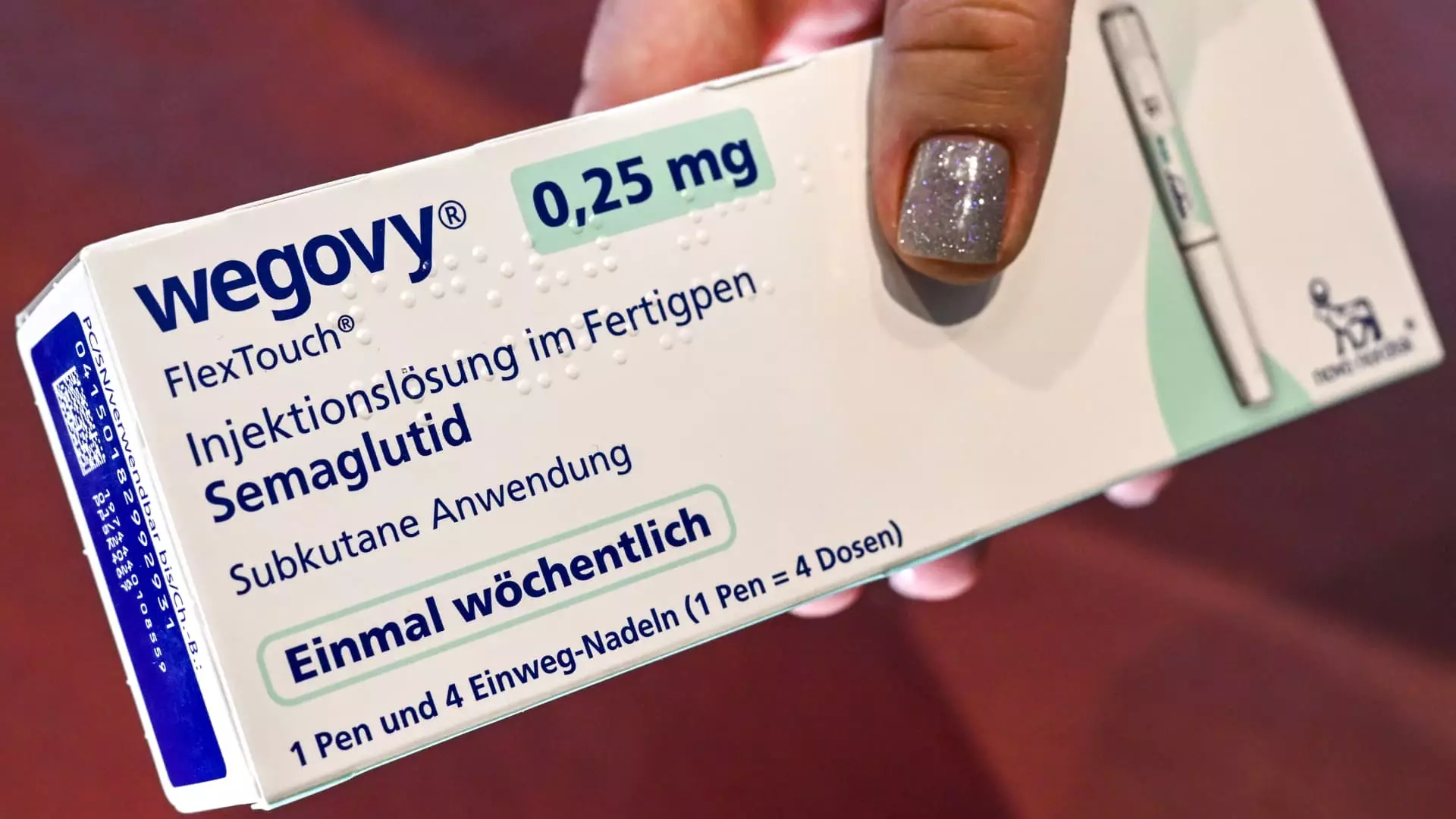Novartis’ foray into the realm of telehealth partnerships for its anti-obesity drug, Wegovy, is a commendable corporate strategy aimed at driving accessibility to a breakthrough medication that offers hope for millions struggling with obesity. However, beneath the surface of this seemingly beneficial partnership lies a complex web of ethical and economic considerations that demand scrutiny. By collaborating with telehealth giants like Hims & Hers, Ro, and LifeMD, Novo Nordisk taps into a growing market in the United States, removing the barriers that once hindered access to this revolutionary drug.
Nonetheless, we must reflect on what it means when healthcare becomes somewhat commodified through pharmacy partnerships. While improving patient access is undeniably crucial, what does it say about a system where healthcare can escalate into a competitive marketplace, with companies vying for influence over treatments that fundamentally shape health outcomes? The prices for Wegovy fluctuate depending on the provider, raising concerns about fairness and equality in health access.
The Notion of ‘Cost-Effective’ Solutions
Novo Nordisk’s introductory offer via its direct-to-consumer online pharmacy, NovoCare, presents Wegovy at an attractive $499 per month, effectively halving the usual price for patients without insurance. However, many will still find this figure to be prohibitively high, especially since decisive insurance coverage may take time to standardize, leaving patients in limbo with out-of-pocket expenses. Hims & Hers aims to adopt a holistic approach by bundling Wegovy with ongoing clinical support and nutritional guidance for $599, thus positioning itself as a full-service health provider.
While this approach certainly improves the patient experience, it also dilutes the notion of value. Successful health interventions should arguably prioritize affordability over additional services; the focus thus shifts from addressing patients’ health needs to creates a façade of comprehensive care. The concern here is palpable: Are patients receiving care, or are they buying into a brand, complete with extras that might make the experience palatable but not genuinely affordable?
The Dilemma of Compounded Medications
One of the most contentious aspects of Wegovy’s rollout is the waning availability of compounded alternatives. With significant restrictions now imposed on pharmacies that previously produced unapproved versions, many patients are left to navigate a precarious landscape of choices. Novo Nordisk’s Dave Moore has emphasized the company’s commitment to ensure patients transition seamlessly from compounded medications to their branded product, a vision that, while noble, overlooks the nuances of patient’s individual needs.
Regulatory complexities surrounding compounding pharmacies lead to an inherent contradiction within the medical community. While some argue that compounded medications could fill vital gaps, others express stringent opposition due to their lack of FDA approval. When companies push for stricter controls, as indicated by new deadlines for pharmacies to cease production, it raises essential questions about patient choice. Are we leaning too heavily towards regulatory compliance at the expense of the individual needs and rights of patients?
The Stock Market Reaction: Health or Hype?
The response from the stock market demonstrates an apparent optimism regarding Novo Nordisk and its telehealth partnerships, as stocks surged following the announcement. Are we seeing a genuine belief in improved health outcomes, or is this simply a reflection of market speculation? Hims & Hers, in particular, enjoyed an 18% surge in share value, emphasizing how the financial entity of health can often overshadow its intrinsic values.
This surge reveals a troubling dynamic within healthcare: profit and well-being may be viewed as interchangeable, giving rise to ethical quandaries about the extent to which financial incentives shape medical developments. The excitement in the stock market begs a vital question about whether this enthusiasm will translate into real-world benefits, or if it merely serves as a bargaining chip for corporate stakeholders.
The Path to a More Inclusive Healthcare Future
Novo Nordisk’s current posture in the telehealth arena undoubtedly has the potential to reshape how patients access life-changing medications like Wegovy. However, every advancement comes with its basket of challenges—regulatory complicity, the stigma surrounding obesity, and the complexities of pricing structures should be diligently examined.
As the demand for comprehensive healthcare solutions surges, we must challenge the status quo, calling for more than just unified access to medication. The future should be based on transparency, affordability, and the principle of patient-centric care. Now more than ever, as telehealth redefines how we interact with treatment, we must advocate for a system that prioritizes genuine health rather than forging a marketplace of constrained options. Driven by collective advocacy, the healthcare landscape can evolve into one that values individuals over profits, championing better health for society, not just the financial bottom line.

